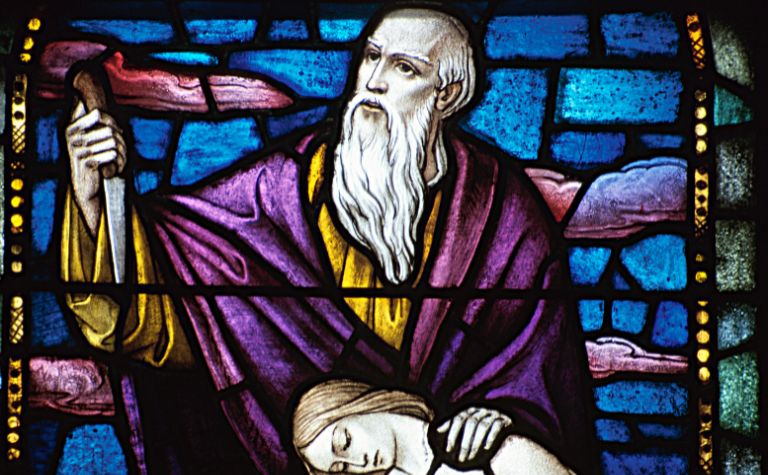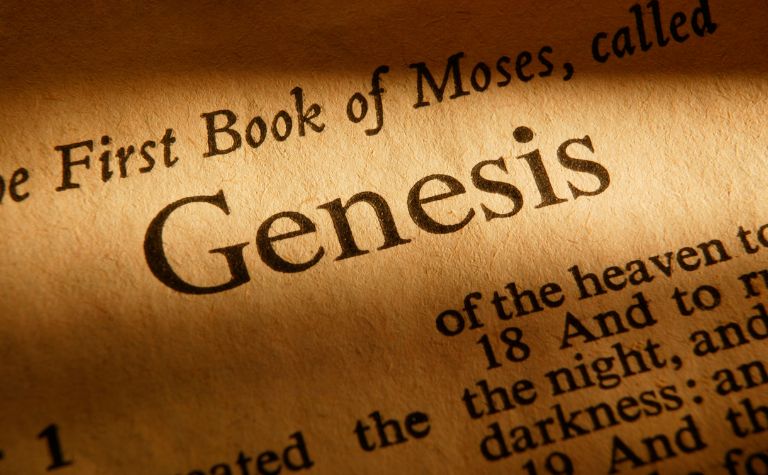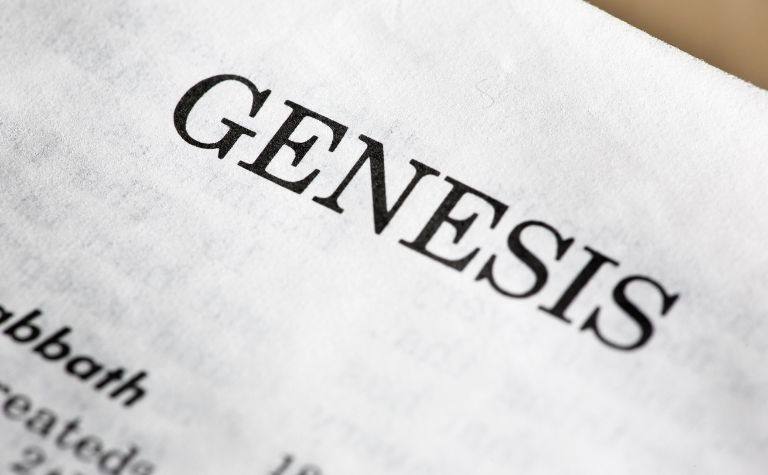Abraham, the first Hebrew patriarch, is known for being the father of the Jewish race and the nation of Israel. His wife and some of his children are central to his story in the book of Genesis. Sometimes when people refer to Abraham’s children, they mean all his descendants. Yet, others want to know how many biological children Abraham had.
Abraham had eight sons from three women. He likely had daughters, too, but the Bible doesn’t mention them. Abraham fathered Isaac with his wife, Sarah. He fathered Ishmael with Hagar, his wife’s servant. He also fathered Zimran, Jokshan, Medan, Midian, Ishbak, and Shuah with Keturah.
Why does Isaac stand out among all of Abraham’s children? What was unique about him? What family trials led to the birth of Ishmael, Abraham’s son from Hagar? Who was Keturah? When did Abraham know her? Keep reading to learn the answers to these questions and many others.
Also, many readers of Genesis are interested to learn how old Abraham was when he died so that they can learn more about his story. See the full article for more insight.

Isaac: The Child of Abraham and Sarah
After decades of barrenness, along with the anguish and sorrow that resulted from it, Sarah gave birth to Abraham’s son, Isaac (Gen. 21:1-7). The name “Isaac” means “he laughs” because Abraham and Sarah both laughed when God told them they would be parents in their old age (Gen. 17:7-19; 18:11-15).
Regarding Bible-wide themes, Isaac is significant because he inherits God’s promises to Abraham of land, nation, and blessing (Gen. 12:1-13). God told Abraham, “Whatever Sarah says to you, do as she tells you, for through Isaac shall your offspring be named.” (Gen. 21:12b, ESV, emphasis added)
Abraham’s near-sacrifice of Isaac
One of the most significant stories in Genesis, which foreshadows the life and death of Jesus Christ, is when God tells Abraham to sacrifice Isaac as a test of his faith.
Genesis 22:2 reads, “Take your son, your only son Isaac, whom you love, and go to the land of Moriah, and offer him there as a burnt offering on one of the mountains of which I shall tell you.”
After Abraham demonstrated his willingness to obey God (Gen. 22:3-11), an angel stopped him right before he killed his son. It said, “Do not lay your hand on the boy or do anything to him, for now I know that you fear God, seeing you have not withheld your son, your only son, from me.” (Gen. 22:12)
This story is one reason the New Testament upholds Abraham as a man of faith. James 2:21-22 read, “Was not Abraham our father justified by works when he offered up his son Isaac on the altar? You see that faith was active along with his works, and faith was completed by his works” (ESV).
Isaac’s family and legacy
Isaac married Rebecca (Gen. 24). He fathered Jacob and Esau (Gen. 25:21-28). Isaac’s family consisted of relational divisions and deceptions, illustrated in the story of Jacob stealing Esau’s blessing (Gen. 27).
Isaac’s legacy in the Bible is one of the patriarchs of the nation of Israel (Exod. 3:6; 1 Kings 18:36; Jer. 33:26). In the New Testament, he is listed in Jesus’ genealogies (Matt. 1:2; Luke 3:34).
Paul says all Christians are like Isaac because they inherit God’s promises. “Now you, brothers, like Isaac, are children of promise” (Gal. 4:28).
Also, a pivotal moment in Abrhaam’s life was the birth of his first son. Discover how old Abraham was at Isaac’s birth for insight into his faith and marriage.

Ishmael: The Child of Abraham and Hagar
Ishmael was Abraham’s firstborn son. He was born at a time when Sarah struggled with barrenness. “Now Sarai, Abram’s wife, had borne him no children” (Gen. 16:1).
Sarah had an Egyptian servant named Hagar. One day she told Abraham, “Behold now, the Lord has prevented me from bearing children. Go in to my servant; it may be that I shall obtain children by her.” Abraham did what Sarah requested (Gen. 16:2).
After Hagar became pregnant, she treated Sarah dishonorably, treating her with contempt because of her infertility (Gen. 16:4). Abraham and Sarah expelled Hagar and Ishmael from the family (Gen. 16:5-6). However, an angel of the Lord told her to return to the family, promising her descendants (Gen. 16:7-10).
About 13 years later (cf. Gen 17:25), Sarah took offense at Hagar laughing at her, and she and Ishmael were permanently expelled from the family (Gen. 21:9-21). Additionally, the angel of the Lord had previously alluded to Ishmael’s undisciplined and antisocial behavior, which may have contributed to tension in the household (Gen. 16:12).
Nevertheless, God watched over Ishmael. Genesis 21:20 reads, “And God was with the boy, and he grew up. He lived in the wilderness and became an expert with the bow.”
Also, the ancient world is a mysterious place to many Bible readers. Get more insight into Genesis by understanding when Abraham lived, including his approximate birth and death dates.

The Children of Abraham and Keturah
Genesis 25 mentions that a woman named Keturah bore Abraham six sons. It says, “[Keturah] bore him Zimran, Jokshan, Medan, Midian, Ishbak, and Shuah” (Gen. 25:2, ESV). 1 Chronicles 1:32 lists identical sons in the same order.
However, these passages refer to their mother, Keturah, in different ways. Genesis 25:1 refers to her as Abraham’s wife: “Abraham took another wife, whose name was Keturah.” All major Bible translations render the word “wife” in the verse, which comes from the Hebrew word, ishshah.
Yet, 1 Chronicles 1:32 describes Keturah as “Abraham’s concubine.” Likewise, all major Bible translations render the word “concubine” in the verse from the Hebrew word, pilegesh.
The resolution to the discrepancy may lie in the fact that, in some cases, a concubine was a wife of lower status but still a “wife.” Some scholars distinguish between wives, concubines, and “concubine wives.”
However, the same passage that describes Keturah as Abraham’s “wife” (Gen. 25:1, ishshah) also mentions that he had other “concubines” (Gen. 25:6, pilegesh). This leads some scholars to believe that Abraham married Keturah after Sarah died.
Genesis scholar Victor Hamilton writes, “The emphasis on Keturah’s status as wife would suggest that Abraham married her after the death of Sarah. If the emphasis is on her status as concubine then one would think that Abraham married her while Sarah was still living, as he did with Hagar.” [1]
Also, God’s promises to Abraham are the blueprint for his life. Learn what God promised Abraham according to Genesis for more understanding.
References:
[1] The Book of Genesis: Chapters 18-50 by Victor Hamilton. NICOT. p. 165.
[2] Genesis 11:27-50:26 by Kenneth Mathews. NAC.
Related Questions
The story of Noah, the flood, and the ark is one of the most iconic narratives in the Bible. Not only does the magnitude of the floodwaters leave readers awe-struck, but so does the faith that Noah...
Adam and Eve are the first humans God created. Readers know the pair as the first man and woman, and as the first people to rebel against God, which they did in the Garden of Eden. Did Adam and Eve...
